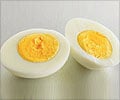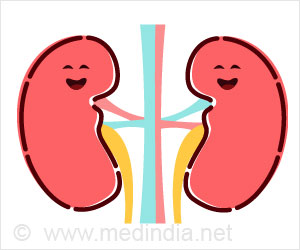Are egg yolks bad for you? Or are egg whites missing essential nutrients? Let’s settle the debate.
- Egg whites are low-calorie, protein-rich, and cholesterol-free, ideal for weight loss and muscle building
- Egg yolks contain essential nutrients, including choline, vitamins, and healthy fats that support brain and heart health
- Whole eggs provide the best balance of protein, vitamins, and minerals, making them a nutrient-dense superfood
Consumption of Different Egg-Based Diets Alters Clinical Metabolic and Hematological Parameters in Young, Healthy Men and Women
Go to source).
that eggs are one of the best natural sources of choline, essential for brain health? #nutrition #medindia’
Egg White Nutrition and Benefits
Albumin or egg whites form a substantial 60% part of an average egg's mass. Egg protein consists mostly of water at 90% while containing 10% protein content.Nutritional Breakdown Egg Whites (Per 100 grams):
Calories: 52
- Protein: 10.9 grams
- Fat: 170 milligrams
- Carbohydrates: 0.73 grams
- Iron: 0.08 milligrams
- Calcium: 7 milligrams
- Cholesterol: None
Egg Yolk Nutrition and Benefits
The popular notion that individuals should avoid egg yolks because of their cholesterol content is wrong since this part provides key nutrients that egg whites cannot offer.Nutritional Breakdown of Egg Yolk (Per 100 grams):
Calories: 322
- Protein: 15.9 grams
- Fat: 26.5 grams
- Cholesterol: 372 mg
- Omega-3 Fatty Acids: Present in small amounts
- Vitamins: A, D, B2, B12
- Minerals: Calcium, iodine, iron, magnesium, phosphorus, selenium, zinc
- Choline: 147 milligrams per egg (27% of daily value)
Most people wonder about the cholesterol impact of eating eggs
The high cholesterol levels in egg yolks led to widespread criticism in the past decades. Research proves that dietary cholesterol affects blood cholesterol levels only minimally. The American Heart Association currently no longer sets strict dietary cholesterol limits but promotes eating a diet with low saturated fats. People with heart health concerns can enjoy eggs since these food items have small saturated fat amounts along with cholesterol content. These nutrients will not escalate heart disease risk if consumed in measured portions.
Eggs for Muscle Building
People interested in developing muscle mass find eggs to be a perfect dietary choice. Studies have shown that the complete egg activates better muscle protein synthesis than separately consumed egg white proteins. Athletes should consider adding egg yolks to their diet because their nutrient mixture of protein with fats which supplies continuous energy helps develop muscles effectively.The Verdict: Whole Eggs or Just Whites?
If your goal is to increase protein intake while keeping calories low, egg whites are a great option. Eating whole eggs becomes the preferred option when you need to obtain all nourishing elements, including healthy fats together with vitamins and minerals. A balance in egg consumption remains vital because men and non-pregnant women should stay within the daily range of one to three whole eggs.Maximizing the Health Benefits of Eggs
- When looking for more omega-3 benefits, select organic or free-range eggs as your choice.
- The healthy preparation of eggs depends on boiling, poaching, or scrambling them while using only small amounts of oil.
- Pair eggs with vegetables and whole grains for a balanced meal.
- People with existing cholesterol problems must be careful not to eat too many eggs since a doctor can provide specific medical advice.
Reference:
- Consumption of Different Egg-Based Diets Alters Clinical Metabolic and Hematological Parameters in Young, Healthy Men and Women - (https://pmc.ncbi.nlm.nih.gov/articles/PMC10490185/)
Source-Medindia













